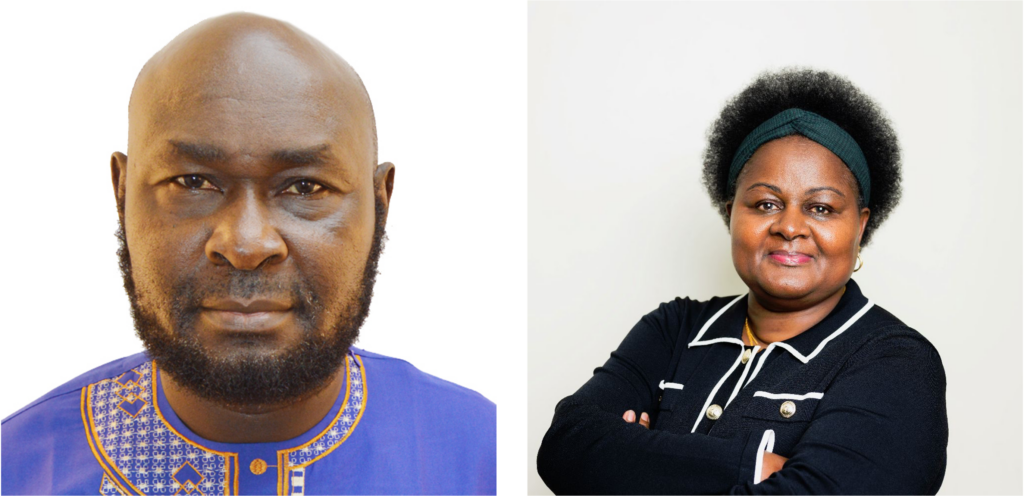
We are Awuor Ponge and Irene Karimi. Awuor Ponge is a Senior Associate Research Fellow at the African Policy Centre (APC), and serves as the Vice-President of the African Evaluation Association (AfrEA). Irene Karimi is the Chief of Party of the USAID-funded State Accountability, Transparency and Effectiveness (State2State) Activity in Nigeria, implemented by DAI Global LLC. State2State Activity in Nigeria worked with sub-national Governments to grow their responsiveness to citizens’ demands and empower civil society organizations (CSOs) to advocate for improvements in governance in the 6 implementation States. This blog is inspired by an Outcome Harvesting evaluation activity that was conducted by Awuor Ponge in Nigeria.
The USAID-funded State2State Activity in Nigeria has made significant strides in improving governance and service delivery at the sub-national level. It was implemented across six states, namely: Adamawa, Akwa Ibom, Bauchi, Ebonyi, Gombe, and Sokoto.
A key focus of State2State has been strengthening public financial management (PFM) systems and processes. There have been significant improvements in budget transparency and citizen engagement. States are now publishing budget documents online for public scrutiny. The development of Community Charters of Demand has allowed citizens to provide input on priority needs to be included in state budgets. CSOs are empowered to analyze budgets and advocate for citizens’ interests. These PFM reforms translate to increased allocations and improved service delivery in key sectors, like education, health, and water, sanitation, and hygiene (WASH).
To institutionalize reforms, State Transformation Committees (STC) were established in each state with new laws and policies on fiscal responsibility, procurement, and monitoring and evaluation being passed. There is now greater synergy between state agencies as well as improved legislative oversight, and gender equality and social inclusion are mainstreamed across interventions. The STC offers a potential vehicle for institutionalizing and sustaining the governance reforms initiated under State2State, having demonstrated that targeted interventions to improve public financial management, citizen engagement and government responsiveness can yield meaningful improvements.
The Activity fostered partnerships, collaboration, and mentorship among a wide array of CSOs and community-based organizations at the state and local government area (LGA) levels. The CSOs were involved in activities such as budget analysis, advocacy, conflict mitigation, community engagement, and promoting government responsiveness to citizens’ needs across the six implementing states. They organized dialogues on conflict issues; collaborated on advocacy for inclusive policies; and advocated for the adoption of the Community Charter of Demand by the State Governments.
By building up CSOs, faith-based organizations, traditional leaders, and governments, the State2State Activity has made progress in improving sub-national capacity to manage conflicts in Nigeria, in partner states, and support state institutions to develop relevant frameworks. The State2State Activity also conducted training on conflict sensitivity, “Do No Harm” approaches, and conflict mitigation techniques for civil society actors. They supported the completion of conflict mitigation action plans with actionable recommendations in some states; as well as providing skills training in conflict mediation, resolution and consensus-building techniques to civil society groups.
Hot Tips
- Implement Community Charters of Demand: Engage citizens in identifying priority needs through Community Charters of Demand (CCDs). This participatory approach allows communities to articulate their needs and priorities for inclusion in state budgets.
- Enhance budget transparency through capacity building of State officials & civil society engagement: Capacity building for government officials and CSOs maximizes impact on responsiveness and accountability.
- Foster public-private dialogues on revenue generation: Convene public-private partnership dialogues on internal revenue generation, taxes, and voluntary compliance which enhance acceptance of tax responsibilities and improves overall resource generation.
The American Evaluation Association is hosting Democracy, Human Rights and Governance TIG Week with our colleagues in the Democracy, Human Rights and Governance Topical Interest Group. The contributions all this week to AEA365 come from our DRG TIG members. Do you have questions, concerns, kudos, or content to extend this AEA365 contribution? Please add them in the comments section for this post on the AEA365 webpage so that we may enrich our community of practice. Would you like to submit an AEA365 Tip? Please send a note of interest to AEA365@eval.org. AEA365 is sponsored by the American Evaluation Association and provides a Tip-a-Day by and for evaluators. The views and opinions expressed on the AEA365 blog are solely those of the original authors and other contributors. These views and opinions do not necessarily represent those of the American Evaluation Association, and/or any/all contributors to this site.
